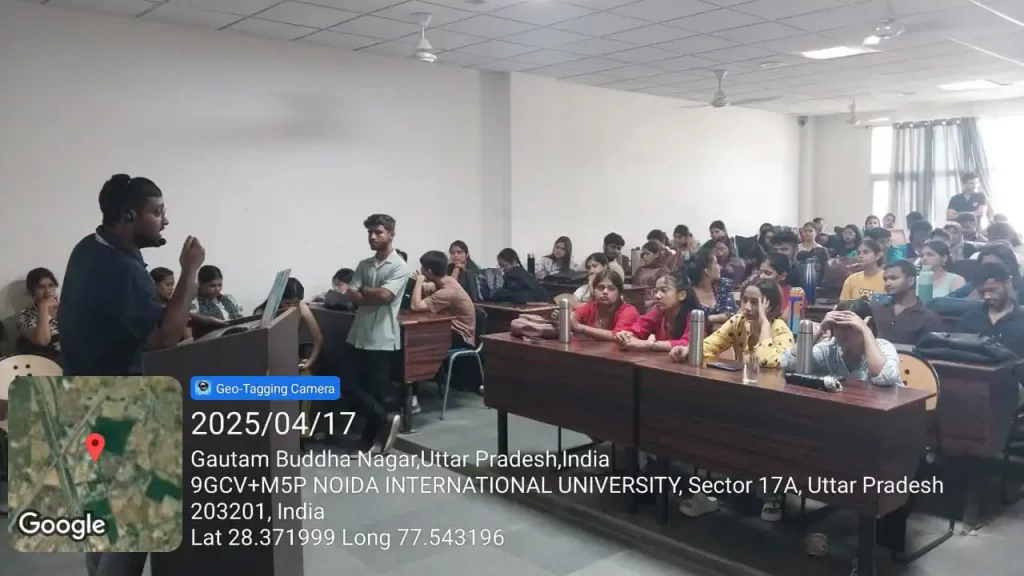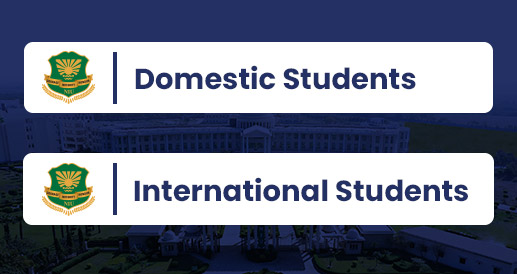Academic Session: – 2024-2025 (Even Semester)
Date: 17th April 2025
Mode of Activity: Offline
Venue: Academic block
Timing: 1:45 P.M. – 4:15 P.M.
Target Group: B.A. (H) [All Department]
Event/Activity Coordinator/ Coordinators: Dr. Nancy Puri & Dr. Shruti Nagar
Organized by: School of Liberal Arts
Introduction:
Geography, being an optional subject in the UPSC Civil Services Examination, explores the complex interplay between the physical environment of the Earth and human societies. It provides a distinctive interdisciplinary perspective, borrowing from natural and social sciences to comprehend the spatial pattern of phenomena and the processes that create our world. The syllabus covers a broad range of subjects, including geomorphology, climatology, and oceanography, human geography, economic activities, and regional development. This broadens the scope so that candidates are able to understand the earth as a whole and its varied population. Opting for geography as an optional subject can prove useful because of the large overlap of the subject matter with the General Studies papers, especially on environment, ecology, disaster management, and Indian geography. This correlation can facilitate preparation and improve comprehension between various sections of the test. Furthermore, geography’s focus on analytical and scientific thinking, in addition to the ability to employ diagrams, maps, and case studies, can render it as a scoring possibility for examinees with varied study backgrounds. The relevance of the subject matter to present-day problems such as climate change, urbanization, and resource utilization further contributes to its attractiveness among prospective civil servants.
Aims/Objectives:
The aim of the Civil Services Lecture series was to make students:
- Providing guidance and mentorship to prepare for UPSC effectively.
- Understanding the usefulness of Geography in civil services preparation.
- Exploring how Geography as an optional paper can help in GS and essay paper.
- Motivate students to consider geography as an interdisciplinary and scoring optional subject.
- Building a supportive environment through peer interaction, discussions, and expert talks to foster a focused and driven approach towards achieving their goals in the civil services.
- Equip students with the necessary knowledge, skills, and strategies to effectively prepare for the competitive examinations.
Content:
On 17th April 2025, the Civil Services Cell, School of Liberal Arts organized a session on “How Geography as an Optional Paper can be beneficial in UPSC”. The lecture was delivered by an expert Dr. Arijit Ghosh, an awarded researcher in the field of Geography. The session was attended by all undergraduate students of school of liberal Arts, as an aspirants interested in civil services.
Dr. Arijit Ghosh began by explaining why one should be excited to learn geography and how this major theory overlaps with the General Studies papers. He told us how, considerable part of the Geography syllabus coincides with GS Paper I (Indian and World Geography), GS Paper III (Environment, Ecology, Disaster Management), and even touches upon the issues covered under the Essay paper. This integration enables joined-up preparation, time and effort saved, while supporting concepts within different sections of the exam. Furthermore, geography knowledge comes in handy when attempting to comprehend prevailing affairs on matters pertaining to the environment, managing resources, as well as within regional affairs, enhancing a dynamic flavor to your analysis in some of the papers. Expert highlighted, its scientific and logical approach, combined with the potential to utilize diagrams, maps, and data to substantiate answers, minimizes subjectivity in assessment than in some of the humanities disciplines. Map-based questions in Paper II can prove to be very rewarding if well prepared. In addition, the presence of sufficient study material and coaching material renders it feasible for candidates from various study backgrounds, such as science, engineering, and humanities. The relevance of the subject to contemporary issues also makes it interesting and assists in gaining a comprehensive view important for a civil servant. The Q&A session was enlightening where Students curiously asked questions and Dr. Ghosh patiently provided knowledgeable and insightful answers.
Outcome:
The insightful and knowledgeable lecture on Geography as an optional subject ignites a spark of understanding and enthusiasm in the attendees. Students now perceive the subject not just as the study of maps, but as a dynamic interplay between the Earth’s physical systems and human societies. They grasp the significant topic that overlaps the paper of geography and it was useful for the General Studies papers, realizing how a strong foundation in it can enrich their understanding of environment, ecology, and socio-economic issues. The civil services lecture series highlights the scoring potential of the subject through its scientific approach and the effective use of visual aids like maps and diagrams. Consequently, a sense of clarity and direction washes over the aspirants, empowering them to make an informed decision about their optional subject with a newfound appreciation for the relevance and interdisciplinary nature of geography in the context of the civil services.
Conclusion:
The session with Dr. Arijit Ghosh was both inspiring and informative. We wrapped up our discussion on Geography as an optional subject for the UPSC, the key takeaway remains its potent blend of scientific rigor and societal relevance. Choosing geography isn’t just about memorizing maps and climate patterns; it’s about cultivating a spatial understanding of our world and the intricate human-environment interactions shaping it. This subject empowers you with analytical skills, enhances your understanding of contemporary challenges, and crucially, offers a significant advantage through its overlap with the General Studies papers. Ultimately, geography provides a dynamic and scoring pathway for those aspiring to serve the nation with a holistic and informed perspective.



